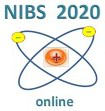Speaker
Description
In the present work, a deep learning model is developed for a permanent magnet-based helicon plasma source. The non-invasive cavity ring-down spectroscopy (CRDS) characterizes the HELEN ion source as a negative hydrogen ion source. This paper discusses different deep learning techniques for modelling the ion source and subsequently predicts the ion source density. The experiments were conducted for measuring the plasma density for the different range of gas pressure (mTorr), magnetic field (B-Field) and RF-power. Consequently, experimental data trains deep learning models. The performance of various deep learning models has been assessed by the root mean squared error and the coefficient of determination values. The deep learning techniques also develop a correlation between the electron temperature and plasma densities which reasonably mimics the behaviour of HELEN ion source and can classify the helicon plasma generation at high power range (800-850 W). Also, the influence of other input parameters such as gas pressure and the magnetic field is assessed using the correlation matrix.

